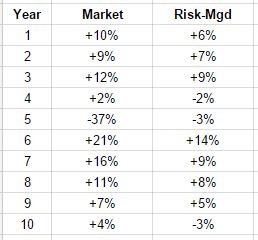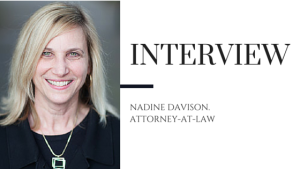The first quarter of this year saw stocks, bonds and real estate all produce positive returns with real estate producing the best gains. The second quarter saw stocks, bonds and real estate all produce negative returns with real estate performing the worst. This is a good example of why it’s important not to get too caught up in month to month and quarter to quarter results.
Since 1950, the split between up and down days in the stock market is about 54%/46% (http://www.crestmontresearch.com/docs/Stock-Yo-Yo.pdf). Short term movements tend to not have much significance, but little edges add up over time.
Speaking of time and significance, I’m declaring the contest for “quote of the year” officially over. We have a winner:
“How can something like this happen without prior warning?” asked Angeliki Psarianou, a 67-year-old retired public servant, who stood in the drizzle after arriving too late at one empty ATM in the Greek capital.”

In Ms. Psarianou’s defense, she could have been trapped in a sealed mine shaft or adrift at sea for the last six or seven years. We don’t know her backstory. But there is one thing we can be pretty sure of, she didn’t have a Plan B.
Having a Plan B is simply an acknowledgement that things may work out differently than you hope. You don’t really think your house is going to burn down do you? Yet we carry insurance and keep working batteries in the smoke detectors just in case. Not because we think it’s going to happen, but because it could and, if it did, the consequences could be tragic.
Ms. Psarianou could have spent the last few years preparing for a financial disruption. Instead, she ignored the obvious possibility in exchange for, presumably, the fleeting comfort of pretending that bad things only happen to the other guy. This isn’t unusual. Some lessons take a dose of calamity to sink in.
The Plan B for our portfolios is an acknowledgment that, although we can’t know the future, we can predict that events and conditions will affect us as investors in four main areas:
- Economic growth
- Interest rates
- Inflation
- Investor sentiment
This makes things simpler. We don’t have to know why any of these factors will increase or decrease. Our job (my job) is to have a plan in place to deal with any combination of outcomes for these factors. Our default stance is to have a relatively standard portfolio that owns stocks, bonds and real estate. The reason that this portfolio appears standard today is because it is adapted to conditions that have been the standard here for the last few decades.
Today’s conditions have not always been the standard and they aren’t the standard in many other parts of the world right now. A Japanese investor has had to adapt to dramatically different conditions than ours over the last twenty years. Now that Ms. Psarianou has had reality thrust upon her, she will be forced to adapt. Which is unpleasant. Being prepared makes things so much easier.
Being prepared can also make things much more profitable. At some point, and it might have already started, conditions will change again in Japan and investors will be rewarded for concentrating their assets in their home country. A new standard will develop, just as new standards have developed in places like China and India. The future may look very dark to Ms. Psarianou, but it won’t always be that way. Maybe she’s working on a Plan B right now to capitalize on that eventuality. I really hope she is.
As for us, the story hasn’t changed much from a month ago. Trends are still in place, but they continue to weaken. This shouldn’t necessarily be taken as ominous, market returns ebb and flow. A protective exit is possible if conditions decline, but for now we stay the course.
Disclaimer: Past performance is not indicative of future returns. Information displayed is taken from sources believed to be reliable but cannot be guaranteed. All indices are unmanaged and investors cannot invest directly into an index. Ideas and opinions expressed in this article are the sole responsibility of Patrick Crook/PLC Asset Management and do not reflect any stated opinions of Commonwealth Financial Network, National Financial Services LLC or any other person or entity.


